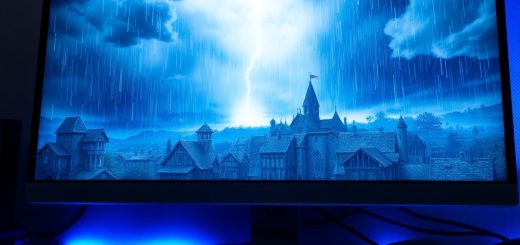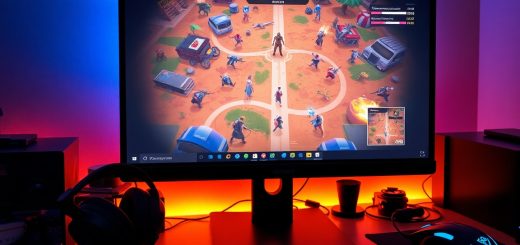How to Build a Community Around Your Favorite Game
Building a community around your favorite game isn’t just about gathering players—it’s about creating a vibrant space where passion meets connection. Think of it like planting a garden. You don’t just toss seeds on the ground and hope for the best. You nurture, water, and care for it every day. The same goes for a gaming community. It takes time, energy, and a spark of enthusiasm to turn a group of players into a tight-knit crew that shares excitement and support.
First off, you need to understand why people would want to join your community. What makes your game special? What stories, challenges, or experiences does it offer that others don’t? When you can answer this, you’re halfway there. People crave belonging. They want to feel like they’re part of something bigger than just playing alone. So, your community should be a place where they can share victories, swap tips, and even vent about those frustrating levels that seem impossible.
It’s also crucial to keep things fresh and fun. Imagine a party where the music never changes, and the same conversations repeat endlessly. Boring, right? Your community needs energy. That means regular updates, interesting discussions, and maybe even some friendly competitions. Don’t be afraid to throw in surprises that keep members curious and engaged. After all, no one likes a stale hangout.
One of the biggest challenges? Making sure everyone feels welcome and respected. A community without trust and kindness quickly falls apart. Setting clear guidelines and having fair moderators can help keep the space positive. Think of them as the friendly hosts who make sure everyone plays nice and that no one spoils the fun.
Lastly, remember this: your community is a living thing. It grows, changes, and sometimes stumbles. But with passion and patience, you can build a place where players don’t just come to play—they come to belong.
Choosing the Right Platform for Your Community
Picking the perfect platform to build your gaming community is like choosing the right stage for a play—it needs to fit the audience, support the action, and make everyone feel at home. You want a place where your members can chat, share, and connect without hassle. But with so many options out there, how do you decide? Well, it boils down to a few key things: accessibility, features, and what your community really wants.
First off, accessibility is huge. Imagine inviting friends to a party, but half of them can’t get in because the door is locked or the address is confusing. That’s what happens if your platform is too complicated or requires too many steps to join. Ideally, your platform should be easy to use on both desktop and mobile devices. This way, whether someone is on their phone waiting for the bus or at home on their computer, they can jump in without a second thought.
Next, think about the features. Different platforms offer different tools. Some are great for real-time chat, others for sharing videos or organizing events. For example, Discord is fantastic if you want voice channels and instant messaging, while a forum like Reddit might work better if your community prefers longer discussions and threads. Social media groups, like those on Facebook, can be handy but might lack some gaming-specific tools.
Here’s a quick look at some popular platforms and what they bring to the table:
| Platform | Strengths | Considerations |
|---|---|---|
| Discord | Voice & text chat, easy event setup, bots for moderation | Can get noisy, needs moderation |
| Threaded discussions, voting system, public visibility | Less real-time interaction | |
| Facebook Groups | Wide reach, familiar interface, event tools | Algorithm limits visibility, less gamer-focused |
| Forums (e.g., phpBB) | Organized topics, long-form content | Can feel outdated, less instant interaction |
Also, don’t forget to consider your audience’s preferences. Are they casual players who like quick chats, or hardcore fans who enjoy deep discussions? Sometimes, the best way is to ask them directly. A simple poll or informal conversation can reveal what platform they feel most comfortable with.
Finally, remember that no platform is perfect. You might start on one and switch later as your community grows or changes. The key is to stay flexible and keep your members’ experience at the heart of your decisions. After all, a community is about people, not just technology.
Engaging Members with Events and Content
Keeping a community buzzing with energy isn’t just about having members—it’s about making them feel involved and excited. Imagine your favorite game as a campfire; the events and content you create are the sparks that keep the fire alive and warm. Without these sparks, things can get dull fast. So, how do you keep everyone coming back for more?
First off, events are your secret weapon. They don’t have to be huge or complicated. Even a simple weekly tournament or a trivia night can light up the chat and get people talking. When members participate in events, they feel like they belong to something bigger than just a game. It’s like being part of a team that shares victories, laughs, and sometimes even friendly rivalries. Plus, events give everyone a chance to shine and show off their skills or knowledge.
Content is equally important. Think about what your community loves most about the game. Is it the lore, the characters, or maybe the strategies? Create content that taps into these passions. This could be anything from guides and tips to fan art showcases or story discussions. When you consistently share fresh, relevant content, members have a reason to stay engaged and invite friends to join the fun.
Here’s a quick look at some event and content ideas that work wonders:
- Live streams and Q&A sessions with community members or guest players
- Challenges or themed contests with small rewards or recognition
- Weekly or monthly newsletters featuring highlights and upcoming activities
- Spotlight posts celebrating member achievements or creative contributions
Remember, the goal is to build a rhythm that members can rely on. When they know there’s always something cool happening, they’ll stick around. And don’t forget to ask for their input! Sometimes the best ideas come straight from the community itself. After all, a thriving community is like a garden—it needs regular care, attention, and a bit of creativity to grow strong and vibrant.
Moderation and Community Guidelines
Building a community around your favorite game is exciting, but keeping it healthy and welcoming? That’s a whole different ball game. Imagine throwing a party where everyone feels comfortable and respected—that’s exactly what good moderation and clear community guidelines do for your online space. Without them, things can quickly spiral out of control, turning your vibrant hub into chaos. So, why is this so crucial? Because a community thrives when people trust that their voices matter and that the environment is safe.
Setting up community guidelines is like laying down the rules of the road. They don’t have to be stiff or boring—think of them as friendly reminders that help everyone get along. These rules should cover basics like respectful communication, no spamming, and zero tolerance for harassment or hate speech. But here’s the kicker: guidelines only work if they’re clear and easy to understand. If members feel confused or overwhelmed by them, they’re less likely to follow or respect them.
Now, moderation is the engine that keeps the community running smoothly. It’s not just about banning people or deleting posts. It’s about fostering conversations, guiding discussions, and stepping in before conflicts blow up. A good moderator acts like a referee who’s fair but firm, making sure the game stays fun for everyone. Often, this means catching subtle issues early—like a comment that could offend or a post that’s off-topic—before they escalate.
Here’s a quick snapshot of what effective moderation and guidelines can do for your community:
- Encourage positive interactions by rewarding helpful and kind behavior.
- Prevent toxic behavior through swift, consistent responses.
- Maintain focus by keeping discussions relevant to the game and community interests.
- Build trust so members feel safe sharing their thoughts.
Remember, moderation is not a one-person job. As your community grows, consider recruiting trusted members to help. This team effort spreads the responsibility and brings diverse perspectives to handle tricky situations. Plus, it shows your community that you care enough to keep the space welcoming for everyone.
In the end, moderation and guidelines aren’t about control—they’re about care. They’re the invisible glue holding your community together, ensuring it remains a place where passion for the game can truly flourish. So, don’t skip this step. Set those rules, stay active, and watch your community become a place people love to call home.
Frequently Asked Questions
- What’s the first step to building a community around my favorite game?
Great question! The very first step is choosing the right platform where your community can thrive. Think of it as picking the perfect home for your friends to gather. Whether it’s Discord, Reddit, or a dedicated forum, you want a space that’s easy to access, packed with features for interaction, and suits your audience’s preferences. This foundation sets the tone for everything else!
- How can I keep members engaged without feeling overwhelmed?
Keeping your community buzzing is like tending a garden—you need regular care but not too much to burn out your members. Plan fun events, share fresh content, and spark conversations that invite everyone to join in. Simple things like weekly challenges or spotlighting member achievements can create excitement without overwhelming anyone.
- What types of content work best to encourage participation?
Content is the heartbeat of your community. Mix it up with tutorials, game updates, memes, polls, and even behind-the-scenes stories. People love feeling involved, so ask questions or create content that invites opinions. Think of it as throwing a party where everyone gets to pick their favorite song!
- How important are community guidelines and moderation?
They’re absolutely crucial! Imagine a party where no one follows the rules—it quickly turns chaotic. Clear guidelines help keep things respectful and welcoming. Moderation ensures the space stays safe and enjoyable for all members. It’s about creating a vibe where everyone feels valued and free to be themselves.
- Can I grow my community even if I’m starting small?
Definitely! Every massive community started with just a handful of passionate people. Focus on quality interactions and genuine connections first. Like planting a seed, with patience and care, your community will grow into a vibrant, lively space. Remember, it’s not about numbers but the energy and enthusiasm you cultivate.
- How do I handle conflicts or negativity within the community?
Conflicts are inevitable, but how you handle them makes all the difference. Stay calm, listen to all sides, and enforce your guidelines fairly. Sometimes, a private chat or gentle reminder can cool things down. Think of yourself as the community’s peacekeeper, ensuring the fun and friendliness never fade away.
- Are there tools to help me manage my community more efficiently?
Absolutely! Many platforms offer moderation bots, scheduling tools, and analytics to help you stay organized and understand your members better. These tools are like your trusty sidekicks, making community management smoother and freeing you up to focus on what you love—connecting with your fellow gamers.


